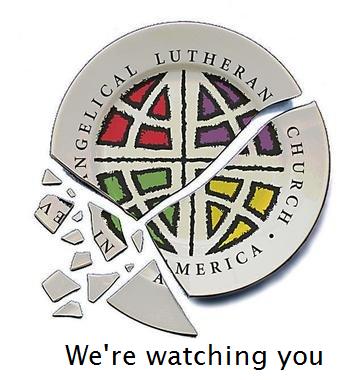SPECIAL REPORT
Political Gaps Strain Churches
In a society already ideologically polarized, many believers go to church in hopes of a respite from conflict. But recent surveys show similar political disparities straining the Christian community. There are huge gaps in political affiliation between clergy and laity, especially in the oldline Protestant denominations. The divide between oldline and evangelical Protestant leaders remains exceedingly wide. The much publicized evangelical left, purporting to bridge that divide with a fusion of evangelical theology and liberal politics, remains statistically insignificant.
It is little wonder that debilitating conflicts have wracked the oldline denominations, contributing to the loss of one-third of their membership over the past 45 years. Oldline church bodies typically depend upon the cooperative endeavors of clergy and lay leadership. But those two leadership groups are pointed in different directions politically and ideologically.
The Presbyterian Church (U.S.A.) is the best documented example. The denomination's research office recently released the results of an exhaustive survey of 3,500 PCUSA members and leaders. Presbyterians in the pews leaned one way politically: 46 percent identified themselves as Republicans, while only 31 percent were Democrats. But pastors leaned sharply in the opposite direction: 23 percent Republicans versus 50 percent Democrats. Specialized clergy, among whom are many top PCUSA officials, were even more lopsided in their partisan allegiances. Only 13 percent were Republicans, as against 65 percent Democrats.
Comparing a 2008 survey of "Clergy Voices" by Public Religion Research with 2008 polling of church members by the Pew Forum on Religion and Public Life reveals similar clergy-laity gaps in other denominations. In the United Church of Christ (UCC), a stunning 77 percent of the ministers call themselves Democrats; only 51 percent of UCC members do the same. Among Episcopal and Evangelical Lutheran (ELCA) clergy, Democrats outnumber Republicans by 3:1. Yet Episcopal and ELCA members are divided almost down the middle.
The United Methodist Church and the American Baptist Churches are the only oldline denominations where pastors and members are even close to being on the same page politically. In both cases, clergy and laity show fairly even splits between Democrats and Republicans. Thus, at least politically, these two denominations are truly "mainline."
Where political diversity is an accepted fact, clergy and lay leaders will more often understand the futility of trying to impose anyone's political agenda as the mission of the church. Church unity will have to come through the teachings and work of Christ. Perhaps it is no coincidence that the United Methodists and the American Baptists are the two oldline denominations that seem most likely to hold firm in traditional Christian doctrines.
The situation is different in other oldline denominations, where overwhelmingly left-leaning clergy often imagine themselves to be "prophets" leading their people into a promised land of social justice and world peace. Clergy elites may possess the institutional power to impose this political agenda; however, by doing so they instigate a rift with their church members. To the extent that politics becomes a focus in church life, the divide grows deeper and more damaging. Peter Smith of the Louisville Courier-Journal described the situation succinctly: "Red pew, blue pulpit."
Evangelical denominations are another world: red pew, redder pulpit. Evangelical ministers are far more heavily Republican than the oldline clergy are Democratic. According to the Paul B. Henry Institute at Calvin College, Republicans outnumber Democrats by an astounding 66-4 percent among Southern Baptist pastors. In the Lutheran Church-Missouri Synod, the margin is 64-4. In the Assemblies of God, it is 74 percent Republicans versus a mere 1 percent Democrats.
There do seem to be a significant number of independents among these evangelical clergy, but Democrats are practically non-existent. It may be that the Democratic Party's identification with the cultural left -- on issues such as abortion and homosexuality -- has become so prominent that a Democratic identification is no longer tenable for most evangelical clergy. Evangelical left figures such as the Rev. Jim Wallis of Sojourners may make a media splash; however, they have few imitators in evangelical pulpits.
One finds Democrats in evangelical pews, but they are a distinct minority. The proportion of Democratic members ranged from 28 percent in the Assemblies of God to 37 percent among Southern Baptists. Republicans held clear majorities in all three evangelical denominations.
Thus it seems most evangelical pastors -- unlike most oldline pastors -- are preaching to congregations that lean in the same direction as them politically. But they would do well to remember that perhaps a third of those in the pews hold a different partisan loyalty. Even in a solidly conservative evangelical church, it would be unwise for the pastor to emphasize a political agenda. Church unity there, as in the oldline churches, will have to come through the teachings and work of Jesus Christ.

